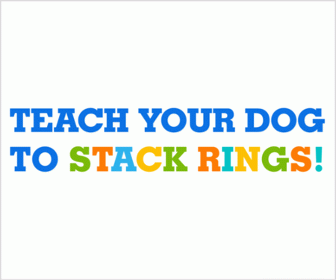If your dog barks too much, it could be because you're rewarding him for it. This includes yelling at, gazing at, or kicking your dog when he barks (you know who you are, so stop it).
If you have a dog from the Hound family (which includes breeds like the Beagle, who are genetically predisposed to bark when hunting), you can still win this battle (peacefully) by implementing both the long-term and short-term strategies presented here. Read this article: 10 Reasons Why Your Dog Ignores Your Commands
The first and most important thing to keep in mind about a barker is the same thing to keep in mind about any other behaviour problem:
An increase in the frequency of a behaviour is to be expected if reinforcement is provided for it.
If you don't reward good behaviour, less of it will occur.
Temporary Solutions to Barking
These should be done consistently in between bouts of the shorter-term workouts.
Important: When you or your family members get home from school or work, silently release the dog outside, and don't meet him in any way until at least 5 minutes later.
Avoid making a big issue when you leave or come home, as this can raise the risk of not only owner-absent barking but genuine separation anxiety, which is especially difficult for children or anybody else who has a puppy.
Read also: Treatment
and Prevention of Dog Separation Anxiety
Unless you know for sure that your dog's barking is a signal for anything exceedingly essential, you should ignore his barking and keep quiet yourself.
If you turn your head or look at your dog while he barks, you are reinforcing the habit. He is seeking for any method to grab your attention, and he will notice your eyes moving.
Inside your dog there is incredible intelligence...
And once you unlock
that intelligence...
Most behavioral
problems simply melt away...
And the bond with you
and your dog grows stronger...
Sound good?
>>> Go here now to unlock your
dog’s natural intelligence today...
He can be doing anything, but if he is quiet, congratulate him and call it what it is. Believe it or not, he will figure out what he's doing correctly sooner than you think, and his "silent" behaviour will escalate.
Be realistic about leaving him alone inside or outside when you can't hear him; if he's upsetting the neighbours, you may have to get him into a daycare. - If you got a breed known for barking (Hounds such as beagles), accept it and alter your expectations.
Barkers, who have a lot of excess energy, should walk or run for at least two hours every day.
He has to be taken for walks on a leash and/or run in a safe place away from your home so that he can get some exercise and become desensitised to the sights, sounds, and scents of your neighbourhood, making them less "barkworthy" than when they were first encountered.
Read also: Understanding Your Dog's Emotions for a Better Bathing Experience
- Obedience training and playtime in the backyard. If you're not already spending at least 30 minutes a day with your dog, you should start. Games like fetch, chase, tug, and hide and seek are terrific ways to bond with your dog while also wearing him out.
Dogs who must be left outside during the day can have their barking reduced by providing them with a stockade fence, a digging pit, a wading pool, plenty of toys, and agility-type obstacles.
If you leave your dog chained outside, it will bark and may even get aggressive if something happens nearby.
Enroll in an obedience class at a positive reinforcement facility (see the Trainer Search at http://www.apdt.com for ones in your area) to learn how to communicate with your dog and learn to give him attention for the good things he does, which will make him less frustrated, more responsive to you, and much less likely to bark.
After you've brought him through obedience training, try something new like agility, flyball, tracking, or Canine Good Citizen to keep him mentally and physically active.
Don't bother yelling at your dog if it barks excessively; some dogs will take this as an invitation to join in the chorus, and all dogs know that being yelled at is more attention than they were getting before they barked.
Taking him to a cage-free dog daycare once or twice a week can help him understand that being in close quarters with other dogs isn't always cause to start barking.
In the short term, you can teach your dog to bark on command, which will give you much more control over his barking. If you also teach him to quiet down when you tell him to, you'll have solved the problem completely.
Read also: Using
an Electric Dog Training Collar to Train the Recall
This exercise calls for a partner, and you should repeat it multiple times over the course of several days, perhaps for 20 minutes each time, with a person who can follow your instructions.
First, have your assistant walk outside and ring the doorbell in 5 seconds. Then, shut the door behind you and your dog, count to 4, and tell him, "Speak!"
You have now associated the command "Speak" with your dog's barking, and if you timed it well, the doorbell will ring, setting off your dog's predictable barking frenzy.
After a few seconds of barking, hold a treat in front of your dog's nose and give the word "Quiet." He will stop barking in order to eat the treat, and you can then praise him with "Good quiet" as he eats.
By doing this, you'll set your dog up for a lifetime of happily obeying your "Quiet" order and establishing a positive association between that behaviour and the reward of a tasty treat and your verbal praise, both of which he enjoys.
If you perform this 5-10 times a day, you should be able to stop your dog from barking in a matter of days.


